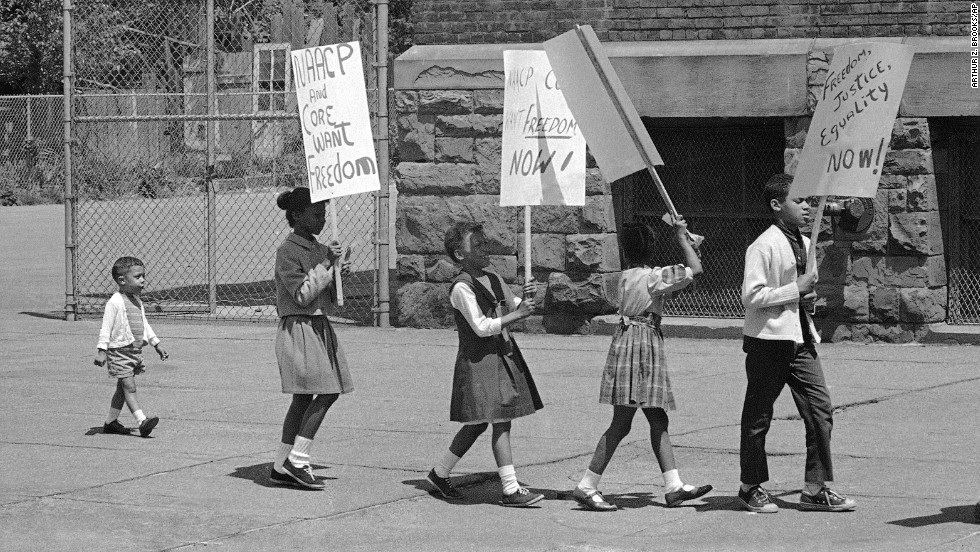
I understood early on in my life, as early as 3rd grade, that my life would be defined by my black skin. I was under no illusion of the greatness of America or under some patriotic spell that made me believe the words I read in our nation’s founding documents were meant for me. I was born in 1959 and by 1968, I had seen enough. One president assassinated, Medgar, Malcolm and Martin killed, innocent black children murdered and the dead president’s brother, a United States senator, murdered five years later. There were no rose-colored glasses clouding my vision. It was painfully obvious to me that this country would exact its hate on my black body and mind in some form or fashion until the day I am laid to rest.
Now, that might sound like some 20-20 hindsight bullshit, but it’s real. What should make that perspective so unnerving is that I am of the black generation that was supposed to tip the scales toward equity in this country. We are old enough to remember the civil rights movement and the turbulent 1970s but too young to have been alive when Jim Crow was flying at his apex. We can recall the segregated south from summer trips to states below the Mason Dixon line visiting grandparents and cousins, but we got a rear seat view in the family automobile. Yet, we are old enough to have memories of seeing tears stream down our parents faces when the news of Dr. King’s assassination came across the family television set, and many of us can reflect that it was the first time we saw our fathers’ cry. My generation has been sandwiched between hope and despair, but our aspirations have been marginalized by the persistence of white supremacy and the new and inventive ways it has worked to deny our humanity.
When I was in elementary school Black children were lead to believe that there were better days ahead, and that our elders’ suffering had paid the debt of racism so we would be free of its grip on Black like. At times, it seemed to be the case. As children, we saw our leaders in Washington pass legislation that enforced our voting rights and equal protection under the constitution, and later access to housing. Even the imagery of whiteness began to fade as television and movies started to put images that looked like us on the screen, and music began to reflect the struggles and hopes of blackness in America. And if that were not enough, we began to see our people move into the top echelons of government and make inroads into the suites of corporate America. Then 1978 came, and similar to the brevity of Reconstruction, a new resistance surfaced in the form of the Supreme Court's Bakke decision and a new narrative of ‘reverse discrimination’ was proffered as a defense of white privilege. We only had from 1964 to 1978 to breathe the air of citizenship before this nation decided asphyxiation was necessary.
Sometime early in my life I saw the writing on the wall. I never really knew exactly ‘what’ I wanted to be when I grew up, but I knew what I wanted to do. I desperately wanted to fight racism. After reading Frederick Douglass’ autobiography (one of three) “My Bondage and My Freedom,” as an elementary school student, my mind was made up. Douglass became my hero and his life’s work spoke to me. It was his willingness to fight and speak his mind, his fearlessness and toughness that drew my admiration. When I read his “What to the Slave is the Fourth of July” oration it spoke to what I felt every time I stood to salute the flag (which I would lead as captain of our color guard) during my school’s weekly assembly or would sit in a classroom and hear no reference to the contributions of black people or Africa. At an early age, it seemed to me that I was the ‘other’ and my only recourse was to commit to a lifetime of struggle, sacrifice and fighting for the dignity of black people. No matter what I might accomplish personally, it would never be divorced from the reality of living Black in America. No degree, job title or amount of money would allow me to avoid the sting of racism.
One week ago, when I walked through the exhibits of the new Smithsonian Museum of African-American History and Culture I was that kid again. What I saw in that magnificent building was an accounting of my life and validation that my childhood prognostication was right. That feeling was confirmed when I walked up the steep stairs of Frederick Douglass’ estate in the Anacostia section of the nation’s capital. It was reinforced when I stared at my great-grandfather’s name on the African American Civil War memorial. Living black in America still comes at great personal cost and risk, and we have not yet reached the point or come remotely close to the day when we will breathe the air of unquestioned citizenship.
Until that time, we must not simply resist, we must fight with a determined spirit and willingness to sacrifice for the unborn and to honor those that came before us. Resistance to racism must be a lifestyle, it has to be part of our spirit – an unwillingness to accept nothing less than full equality and a determination to fight until our dying day. If Black lives really matter, then we must be willing to fight. There can be no retreat, no cowering. We must reinvigorate a radical call for justice in America and leave no stone unturned in its pursuit. There can be no equivocation or accommodation. The lyric ‘before I’ll be a slave, I’ll be buried in my grave’ must become our testimonial until freedom comes.
Walter Fields is Executive Editor of NorthStarNews.com.


















